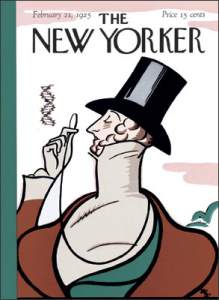In Robert Wright’s May 11 New York Times essay,“The Making of a Terrorist,” we learn a very interesting and useful fact: terrorists are complicated. No offense, Hamlet, but there needs no ghost come from the grave to tell us this.
Yet tell us Wright does. Refuting the (in Wright’s mind) simplistic takes of The Atlantic’s Jeffrey Goldberg and National Review Online’s Daniel Pipes that “jihadi intent” drove Times Square bomber Faisal Shahzad, Wright writes:
I’d like to invite Pipes and Goldberg to imagine an alternative universe, a universe in which behaviors — such as planting a bomb — don’t have a single “root” cause. In this universe, bomb-planting behavior is kind of like the bombs themselves: a number of ingredients have to come together before things get explosive. If you figure out what those ingredients are, and which of them you can control, maybe you can make bomb-planting behavior less common.

Coincidentally, or perhaps not, liberal commentator Ellis Hennican espoused nearly an identically-worded theory on Fox News Channel’s News Watch program on Saturday, only Hennican used the more palatable metaphor of a cocktail of ingredients as opposed to a pipe bomb of factors.
Leaving aside the award for best metaphor, the liberal need to complicate and unearth nuance is in full force in both Wright and Hennican’s commentary. Wright paints this hypothetical portrait of Shahzad:
A Pakistani guy moves to America, goes to college, gets a job, starts a family. He grows unhappy. Maybe he’s having financial problems…or maybe the problem is just that he doesn’t find his social niche. And maybe he was a bit unstable to begin with… anyway, for whatever reason, he feels alienated in America. He stays in touch with people and events back home in Pakistan, and this gives him another reason to dislike America: American drones are firing missiles into Pakistan, sometimes killing women and children…Various things fuel “jihadi intent,” and they may include the policy of firing missiles into Pakistan.
And with that Wright arrives at the natural conclusion of his deconstruction of Shahzad’s psychosis–it’s all our fault for fighting back against jihadi terrorism. Asserting his complication theory, Wright claims not to be blaming America: “Obviously (I hope), to say that American policies may cause terrorism isn’t to say that America is to blame for terrorism. It’s just to say those policies may have downsides.”
Not to impugn Mr. Wright’s sincerity–he certainly seems to believe himself–it’s difficult to imagine how he is doing anything except blaming America. According to Wright, “war-on-terror hawks need to seriously ask if the policies they favor have created terrorists.” He posits our “counterproductive hawkish policies” provide prime recruiting material for Yemeni imam Anwar al-Awlaki and his like. Hmm, the enemy using propaganda–now there’s something novel in the history of warfare.

One wonders what a war-on-terror dove like Wright would have America do exactly? Call off the drones? Sit back and take it? Apparently so. The real purpose of his commentary seems to be the excoriation of President Obama for following in the footsteps of — horrors –George W. Bush:
Unfortunately, President Obama isn’t discarding the Bush-Cheney playbook that has given jihadist recruiters such effective talking points. Quite the contrary: the White House thinks the moral of the Shahzad story may be that we should get more aggressive in Pakistan, possibly putting more boots on the ground. And already Obama has authorized the assassination of al-Awlaki.
The only group Wright appears to be hawkish on in the war-on-terror is the war-on-terror hawks. For some yet-to-be-elucidated reason, they don’t get the same psychoanalytic pass that zealot bombers like Shahzad get. They’re not complicated. They do have a single root cause. It’s called patriotism. But for some that attribute has only downsides.
COMMENTS
Please let us know if you're having issues with commenting.